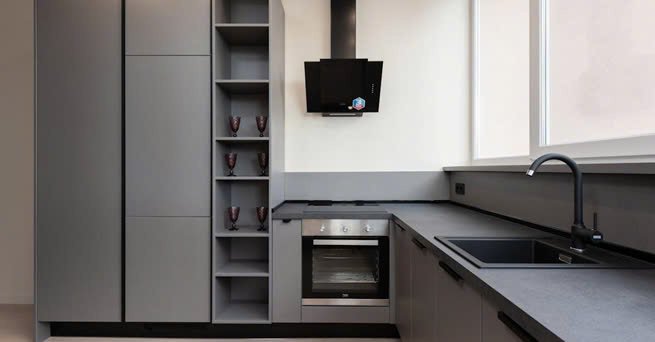5 Things To Do When You Outgrow Your Home-Based Business
Discover five practical steps to take when your home-based business outgrows its space, from expanding operations to finding the right commercial location.
Running a business from home is awesome—until you start running out of space. One day, your garage is organized, your office is tidy, and everything is under control. The next day, you’re stepping over boxes, your dining table is covered in orders, and your living room looks more like a warehouse than a home.
If this sounds familiar, don’t worry. It just means your business is growing, and that’s a good thing! But now it’s time to figure out what to do next. Do you move everything to a bigger space? Do you rent storage? Do you hire help?
The good news is, you have options. Whether you need more room for inventory, a quiet place to work, or a bigger team to help out, there’s a solution that fits your needs and budget. In this article, we’ll go over seven smart ways to handle outgrowing your home-based business—without losing your mind in the process.
1. Declutter and Optimize Your Existing Space
Before you start looking for extra storage or a bigger workspace, take a good look around. Are you really out of space, or is your stuff just unorganized? Sometimes, a little decluttering can make a huge difference.
Start by going through everything in your workspace. Do you have old supplies, broken equipment, or things you never use? Get rid of them! Donate, recycle, or sell anything that’s just taking up space.
Next, think about how you’re using the space you have. Are boxes stacked all over the floor? Try adding shelves or storage bins to keep things neat. Could you use wall space for hanging organizers? What about under desks or inside cabinets? A little creative thinking can help you make the most of every inch.
Also, look at your furniture. If your desk is too big or your chair doesn’t fit well, it might be time to swap them for something that works better in your space.
By organizing what you already have, you might find that you don’t need as much extra room as you thought. And even if you do, at least you’ll have a fresh, clutter-free start before making your next move.
2. Get an Onsite Storage Container for Overflow Inventory
If your business is taking over your home and there’s no more room to organize, it’s time to think bigger—literally. Getting a storage container and keeping it on your property is an easy way to get extra space without moving your business somewhere else.
There are used shipping containers for sale at affordable prices. They’re also available to rent.
You can use a container to hold extra inventory, supplies, or equipment so they’re not piled up inside your house. These containers are strong, waterproof, and lockable, so your stuff stays safe from bad weather and thieves. Plus, since it’s on your property, you can grab what you need anytime without driving to a storage unit across town.
Before getting a container, make sure you have space for it. A driveway, backyard, or side yard could work, but check your local rules—some places require permits. Also, think about size. A 20-foot container is enough for most small businesses, but if you have lots of big items, you might need a 40-foot one.
This simple solution can clear out your house fast, helping you work in a cleaner, more organized space while keeping your business running smoothly.
3. Set Up an Onsite Mobile Office
When your home-based business grows, it’s not just stuff that takes up space—it’s you! If your kitchen table is your office, your bedroom is your meeting room, and your living room is your break room, it might be time to move your workspace somewhere else.
One great option is a mobile office, which is basically a small, portable building that sits right on your property. You can rent or buy one, and it gives you a quiet, private place to work without leaving home. Some people use a converted shipping container as an office, while others get a small prefab office trailer. Either way, it’s a simple way to get more room without renting expensive office space in town.
A mobile office can have everything you need: a desk, chair, shelves, lights, electricity, and even WiFi. You can use it to take calls, focus on work, or meet with clients—without distractions from kids, pets, or the TV.
Before getting one, make sure you have space in your yard or driveway. Also, check if your city or HOA has rules about placing one on your property.
With an onsite office, you’ll have a real workspace—so home feels like home again.
4. Lease Local Commercial or Co-Working Space
If your home just isn’t cutting it anymore, it might be time to find a space outside your house. You don’t have to rent a huge office or a giant warehouse—there are plenty of smaller, more affordable options.
One choice is a co-working space, which is like a shared office where you rent a desk or a private room. These places usually have fast WiFi, printers, meeting rooms, and even free coffee! They’re great if you just need a quiet place to work and meet clients without distractions.
If your business has a lot of inventory or equipment, you might need something bigger, like a small retail space, a storage unit with office space, or a tiny warehouse. Some places offer month-to-month leases, so you’re not stuck in a long contract.
Before signing anything, think about cost, location, and flexibility. Can you afford it? Is it close enough to home? Can you upgrade later if needed?
Renting space outside your house can feel like a big step, but it also makes your business feel more official—and gives you back your home life!
5. Hire Remote or Contract Workers
As your business grows, you might realize you can’t do everything by yourself. If you’re packing orders, answering emails, handling customer service, and running social media all at once, it’s probably time to get some help.
The good news is, you don’t have to hire full-time employees or rent a big office. Instead, you can hire remote or contract workers to help with specific tasks. These are people who work from their own home or on a temporary basis, so you don’t need extra space or a big budget.
For example, you could hire:
● A virtual assistant to answer emails and schedule appointments.
● A freelance marketer to help with social media and ads.
● A remote customer service rep to handle questions and complaints.
● A contract packer or shipper if you have lots of orders.
Websites like Upwork, Fiverr, and Indeed make it easy to find help. You can hire someone for just a few hours a week or as needed.
Getting help lets you focus on growing your business instead of being overwhelmed by small tasks. And best of all, you don’t need to squeeze another desk into your already crowded home!
Outgrowing your home-based business is a good problem to have—it means you’re doing something right! But when your space feels too small, it’s time to make smart changes so your business can keep growing without taking over your whole house.
Start by organizing what you already have. If that’s not enough, rent a storage container for extra inventory or get a mobile office for a quiet workspace. If you need even more room, consider leasing a commercial space. And don’t forget—you don’t have to do it all alone! Hiring remote workers can take a lot off your plate.
With the right steps, you can keep growing your business without losing your home to it. Now, go make some space and keep building your dream!





























